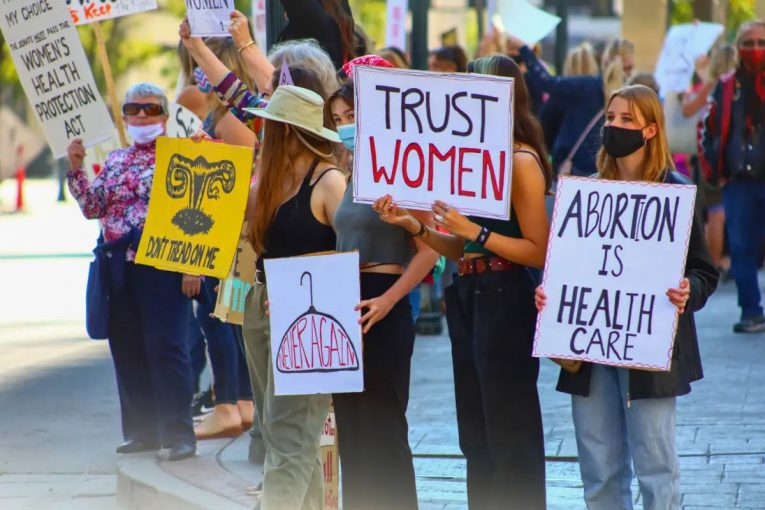

By Leslie Acevedo and Emily Saroyan
TALLAHASSEE, FL – The American Civil Liberties Union (ACLU) said this week the Florida Supreme Court will hear arguments challenging House Bill 5 (HB 5), a ban on abortion after 15 weeks of pregnancy.
The ACLU adds, while the case was granted to hear arguments, the justices “declined to immediately block HB 5 while the lawsuit proceeds, leaving the ban in place for now.”
The ACLU and pro-choice advocates argue HB 5 clearly violates citizens’ dignity and free will.
And, since it went into effect on July 1, it has pushed people to travel out of state to get an abortion and carry out pregnancies against their free will, most likely to suffer life-threatening consequences.
The ACLU added, “Making reproductive health care inaccessible in the middle of a maternal mortality crisis disproportionately harms Black women, who are nearly three times more likely than white women to die during childbirth or shortly after.”
Whitney White, a staff attorney, a part of the ACLU Reproductive Freedom Project, said, “We look forward to making our case before the state supreme court and will do everything in our power to urgently put an end to HB 5, which is a blatant violation of the state constitutional rights of people who can become pregnant.”
Daniel Tilley, legal director, a part of the ACLU of Florida, emphasizes the need to fight endlessly for people’s rights, not stopping “[u]ntil we have reproductive freedom for all.”
Alexandra Mandado, president and CEO, Planned Parenthood of South, East, and North Florida, and Stephanie Fraim, president and CEO, Planned Parenthood of Southwest and Central Florida, added, “We will do everything in our power to ensure that patients have the resources to access care.”
Alexis McGill Johnson, president and CEO, Planned Parenthood Federation of America, noted, “The deprivation of rights is compounded for Black and Latino communities; people with low incomes; and youth, who already experience higher social and economic barriers to accessing abortion.”
Autumn Katz, interim director of litigation at the Center for Reproductive Rights, hopes the court will restore citizens’ ability to make choices on their health and lives, explaining, “We will work tirelessly to strike down this ban and restore abortion access for good in the state.”
“We hope that the Florida Supreme Court will ultimately block the state’s harmful ban. Floridians already have to jump through multiple hoops just to obtain essential health care including being forced to wait 24 hours before receiving services despite potentially dangerous consequences to their health. Our patients deserve the ability to make such deeply personal decisions about their health with their doctors. We will keep fighting this unjust ban to protect our patients’ rights to control their own lives and futures,” said Kelly Flynn, president and CEO of A Woman’s Choice clinics.
And, Jenner & Block Partner April Otterberg added, “We look forward to making our case before the Florida Supreme Court and fighting for the constitutional rights of Floridians everywhere. Our hope is that once the court hears of the devastating impacts of House Bill 5, we will win much-needed relief for the many individuals in need of essential reproductive healthcare in Florida.”
The ACLU noted despite overwhelming opposition to banning abortion among Florida healthcare professionals, Gov. Ron DeSantis signed HB 5 into law in spring of last year.
The ACLU added two-thirds of Floridians support the right to abortion, and voters have consistently cast their ballots to ensure that the state constitution provides independent protection for the right to abortion.
In 1980, Florida voters amended the state constitution to provide broad protections for individual privacy rights—including abortion. And, in 2012, voters overwhelmingly rejected Amendment 6, which would have taken those protections away.
The ACLU explains a state trial court issued an injunction in July, which blocked the law due to the ban violating the state constitutional rights of Floridians. However, the order was sustained under Florida law after the case was appealed to the First District of Appeals.
The current ACLU appeal involves plaintiffs who were a group of Florida abortion providers and they could not rely on the harm that the ban creates as a reason to block it. These rulings were requested by the plaintiffs to reserve the First District Court of Appeals’ order so as to get the state trial injunction reinstated.